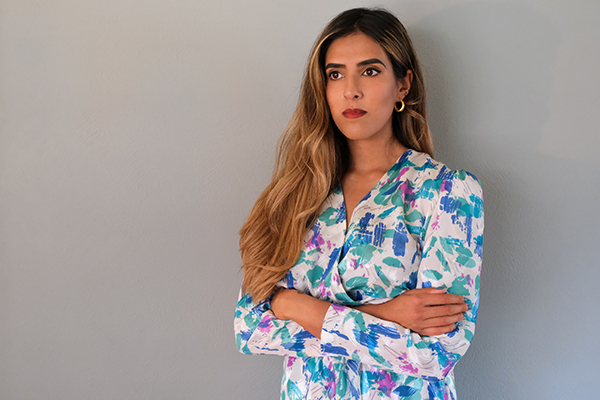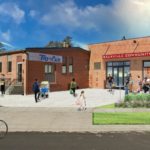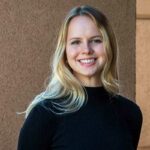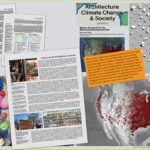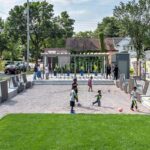Sarah Aziz joins SARUP as the Fitzhugh Scott Innovation in Design Fellow. Most recently, she was a visiting assistant professor of architecture at Texas Tech University. She holds a bachelor’s degree in architecture from Liverpool John Moores University and a master’s in architecture from the School of the Art Institute of Chicago.
Aziz’s work explores ways of circumventing existing, ineffective modes of information distribution and cultural production through fringe research and the creation of temporary discursive spaces, and includes her directorship of MOOCH Series, exhibitions in Tokyo, London, and Chicago, and a MacDowell Colony Fellowship.
At UWM, this work will include a seminar on “Wisconsin Wastelands,” which requires students to embed themselves in some of Wisconsin’s most inhospitable landscapes. Keeping social distancing in mind, students will observe and have conversations with local residents. They will design and build an armature that will allow them to live comfortably in their chosen “wasteland,” without causing any harm to themselves or their respective sites, for a month.
Aziz said the goal is to reframe the way Wisconsin-based students consider these familiar sites that are labeled as “other” in the discipline of architecture. Through a series of impromptu, Dadaesque and countercurricular activities, students will understand how these environments work and affect the popular imagination, while generating new spatial, ecological and social knowledge in the process.
“By being forced to step unflinchingly into hostile landscapes and initiate robust, and often difficult, dialogues about various environmental and societal issues, students will develop the vocabulary and tools to share insights and ideas with people from both inside and outside the discipline and learn to design in a more collaborative, resilient and responsive way,” Aziz said.
Public health dialogue in 2020 has reinforced Aziz’s career-long interests in discursive spaces that bring together groups of people from diverse backgrounds.
“As an educator and a citizen of the world, I’m always interested in engaging multidisciplinary partners to discover relevant and meaningful ways of cultivating community and making site-specific architectural interventions in cooperation with the people who use them.” Facilitation and documentation of these moments – from Walmart parking lot survivalism workshops to pirate radio station installations – is a practice she will encourage among her students.
“We’re seeing the creation of alternative, ephemeral spaces that communities use for informal conversations in both the physical and digital realms. I think that this period of sequestration, due to COVID, might give us more empathy to use and misuse these spaces to have vital conversations.”
“Sarah’s research re-interprets more traditional community engagement and installation practices through hacking and low-tech production,” Zell said. “We are excited to see how she disrupts this practice with our students and faculty.”
